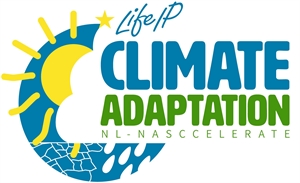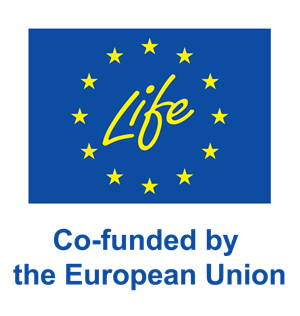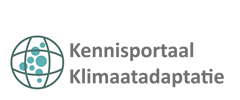Expediting actions
The LIFE-IP Climate Adaptation programme encompasses projects and expediting actions. These actions ensure actual acceleration in climate adaptation. The efforts are divided over three categories: monitoring and evaluation communication, dissemination, replication; other actions.
Monitoring and evaluation
The results of the projects and actions are continuously monitored, measured, and evaluated. This generates motivational and inspiring lessons to be learned. The results of the expediting action are listed below.
- Monitoring plan: The monitoring plan (pdf, 1.1 MB) was published in April 2023. This plan describes how all projects under the LIFE-IP Climate Adaptation Programme will be monitored. In it you will also find the monitoring strategy and monitoring protocol. The monitoring strategy explains why and how monitoring is done. The monitoring protocol describes what is being monitored. This monitoring plan also reports on the baseline measurement.
- First monitoring report: The first monitoring report (pdf, 1.3 MB) was published on 22 December 2023. This describes the 1st monitoring cycle, including the monitoring strategy and monitoring protocol. One of the conclusions of this report is that the projects have made good progress individually. And that the 'cogwheel meetings' and programme days contribute to "learning during monitoring" within and between the project themes (the cogs): Knowledge Transfer & Tools, Governance & Integral Approach, Awareness & Urgency, and Business Models & Financing. It also turns out that securing climate adaptation is still perceived as an obstacle. For each cog, the programme team makes a number of recommendations for the next monitoring cycle.
Communication, dissemination, replication
The LIFE-IP Climate Adaptation programme partners communicate on the programme and the lessons learned in a range of ways. The lessons are disseminated on a wide scale, in order to be applied by others. The results of the expediting action are listed below.
- Communication strategy: “No climate adaptation without communication”. That is the title of the communication strategy (pdf, 2.3 MB) for the LIFE-IP Climate Adaptation programme. The strategy was presented in April 2023 and sets out how communication can help to expedite climate adaptation. The corresponding communication plan sets out the practical steps ensuing from the strategy. Furthermore, a communication checklist (pdf, 1.7 MB) has been drawn up for all the programme partners. This specifies how the partners need to communicate on their projects in order to meet the EU directives. The plan and the calendar will be adapted when developments so dictate.
This involves a result of the “Communication and awareness” expediting action (E1).
Other campaigns
Other actions will result in, e.g., a Climate Adaptation Knowledge Agenda and in action principles for collaboration on climate adaptation. The results of these preparatory actions are listed below.
- Strategy for knowledge dissemination: a strategy (pdf, 739 kB) has been drawn up to promote the dissemination of knowledge gained within the LIFE-IP Climate Adaptation programme. The document outlines the opportunities and the need for fostering the propagation of knowledge and experience relating to climate adaptation. The strategy was drawn up in close consultation with the LIFE-IP Climate Adaptation programme partners. The contents of the interviews with the partners have been translated into discussion maps (pdf, 405 kB) [in Dutch].
This is a result of the preparatory action ‘Strategy for knowledge transfer' (A6).
- The Climate Adaptation Knowledge Agenda maps out the climate adaptation knowledge and tools available in the Netherlands, specifying where such knowledge can be found and indicating any knowledge still missing. The Knowledge Agenda comprises three sections that need to be used in conjunction:
This is a result of the preparatory action ‘Inventory of knowledge and tools’ (A1)
- Action principles for collaboration on climate adaptation: the document entitled "Tips and tricks for collaboration on climate adaptation (pdf, 9.3 MB)" presents a wide range of practical tips on collaboration. It contains twelve points for attention in a “flywheel” format. The flywheel serves as a checklist. It can be used at the start of a collaboration but also during an on-going collaboration.
This is a result of the “Guidance on governance and integrated approach” preparatory action (A3).
Share this


